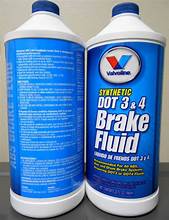Unveiling the Power of Diesel Exhaust Fluid: A Green Solution for a Cleaner Tomorrow

In an era where environmental consciousness takes center stage, the automotive industry is continually striving to develop sustainable solutions to reduce emissions and minimize its ecological footprint. One such innovation that has gained prominence is Diesel Exhaust Fluid (DEF). This colorless, non-toxic fluid plays a pivotal role in transforming harmful emissions into environmentally friendly byproducts, making it a key player in the pursuit of cleaner air and a healthier planet.
Understanding Diesel Exhaust Fluid (DEF):Diesel Exhaust Fluid, often referred to as AdBlue in Europe, is a clear and odorless solution composed of 32.5% urea and 67.5% deionized water. It is injected into the exhaust stream of diesel engines equipped with Selective Catalytic Reduction (SCR) technology. The primary purpose of DEF is to reduce nitrogen oxide (NOx) emissions, a major contributor to air pollution and smog.How Does DEF Work?When introduced into the exhaust system, DEF undergoes a chemical reaction with the nitrogen oxides present in the exhaust gases. This reaction results in the conversion of NOx into harmless nitrogen and water vapor. The SCR system, in conjunction with DEF, effectively mitigates emissions, ensuring compliance with stringent environmental regulations.Environmental Benefits:
Reduced NOx Emissions: By using DEF, diesel engines can achieve a significant reduction in NOx emissions, contributing to improved air quality and public health. This is particularly crucial in urban areas where diesel-powered vehicles are prevalent.Compliance with Emission Standards: Governments worldwide have implemented strict emission standards to curb pollution. DEF is a valuable tool for industries and vehicle operators to meet and exceed these regulations, fostering environmental responsibility.Enhanced Fuel Efficiency: The SCR technology, paired with DEF, can enhance the overall fuel efficiency of diesel engines. This not only reduces operational costs but also lessens the carbon footprint associated with fuel consumption.Extended Engine Life: By minimizing NOx emissions, DEF helps protect the components of the engine and exhaust system, promoting longevity and reducing the frequency of maintenance requirements.
Fuel Savings: The improved fuel efficiency associated with DEF utilization translates into cost savings for businesses and individuals alike, making it an economically sound choice.Regulatory Compliance: Adhering to emission standards ensures that businesses avoid hefty fines and penalties, safeguarding their bottom line and reputation.





